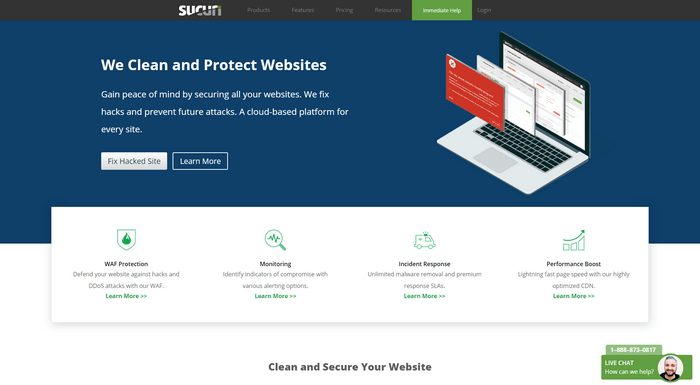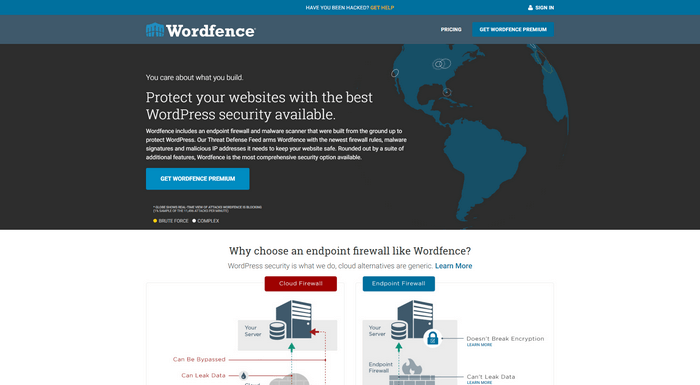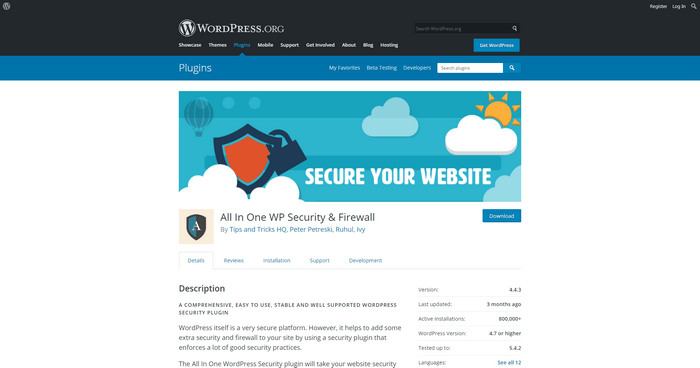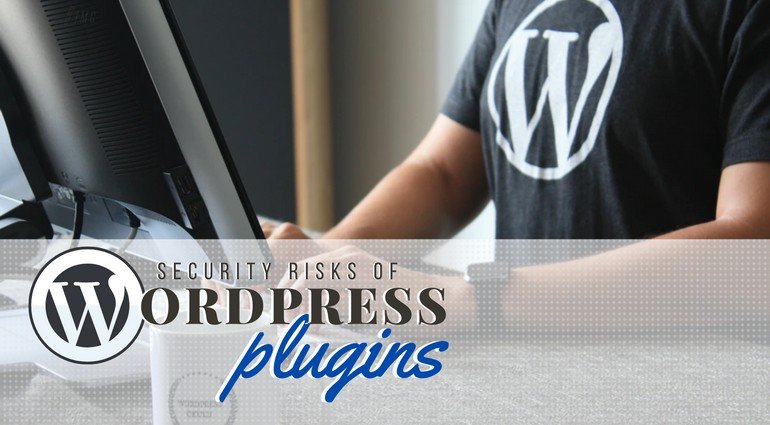Security risks of WordPress plugins have been a concern among web owners. It is not surprising that WordPress has become a favorite target of cyber attackers since 40% of the world’s top 500 sites are built on WordPress.
Despite security risks, web designers still rely on it heavily to whip up a website in no time. Even amateur web designers can use this Content Management System (CMS) like a pro because of its straightforward usability.
In total, there are about 81 million websites on the internet that use WordPress. It makes WordPress the most popular CMS platform.
How Important are WordPress Plugins for Security?

Is WordPress secure? A lot of factors contribute to WordPress security. How one uses the platform, website configuration, digital hygiene, and WordPress best practices are some of those.
Since it is close to impossible to eliminate risks on the internet, website security is risk reduction management. It should be robust enough to detect vulnerabilities beforehand and defend the system effectively.
It makes a difference if you get the best WordPress security plugins to make your site secure against threats. Sadly, not all website builders secure their place. When they integrate a plugin with security problems, whether intentional or not, their site cannot mitigate vulnerabilities efficiently because there is no necessary protection.
Forbes noted that there is an average of 30,000 new websites hacked daily. Cybercrime is a trillion-dollar industry causing damages that can amount to $6 trillion by 2021.
3 of the Riskiest WordPress Plugin Vulnerabilities
There are several identified vulnerabilities of WordPress plugins. Here are some of the riskiest ones:
Arbitrary File Viewing and Upload
An arbitrary file is a file on a specific server or system that lets you modify everything on that system. It contains accurate coding data and programs instructions. Usually, those that contain sensitive information are hidden from view from third parties. However, when security is lacking, hackers get access to these raw files.
Files can be anything from the customer database to their banking information. Once hackers get into the archives, they can also inject it with malicious scripts that further compromises your system and data.
Some systems also allow their users to upload their files into the system, like pictures, PDF files, or videos. Without proper security, your order will not be able to vet what kind of files are safe or not. Some files, for instance, may bog your system down. Some files may have malicious code embedded in them.
For example, a hacker can upload a .php file instead of the .pdf file. The former contains an executable code that can create a new admin account or a backdoor. The aim is for the hacker to gain access to the website or application.
SQL Injections
SQL injections are common vulnerabilities. It exploits those areas of your system that send information to the database. If no plugin checks the validity of the information sent to the database, a hacker can exploit this vulnerability easily.
The hacker can inject malicious scripts and other input. The hacker can hack their way to the system, create an admin account, and control your system or device, like changing the password and inject spam.
Cross-site Scripting XSS
XSS is a kind of malware injection that hackers exploit, not so to hack a website but its users. These kinds of attacks seriously damage your reputation and relationship with customers or followers. Through something as innocent as the comments page, hackers get to add malicious comments to deface your website, mess up your site’s contents.
XSS is a kind of injection vulnerability wherein cyber attackers add malicious scripts to websites through the comments section. This hack targets website users more than the site itself. They can harness it to deface a site, change the contents, or even shamelessly redirect people to their site.
3 of the Best WordPress Security Plugins
Integrating security protocols should not be an option for WordPress users. The lack of security protocols and practices is still the most significant vulnerability, not just to WordPress but to everyone using the internet.
Sucuri Security

Sucuri Security is popularly downloaded by WP users, who rely on its auditing, malware scanner, and security hardening. It builds layers upon layers of security to keep threats away from your system. You are also secured that only real visitors will have access to your website. It is fast, efficient, and a globally trusted provider of antivirus and firewall protection.
Upon installing the plugin, it runs an automatic scan for malware, infected files, and link injections. Even with the free version, you can conduct security auditing, check files for integrity, and detect failed logins. You get notifications for unauthorized attempts to modify or access your files.
When you upgrade to its paid version, you can avail of the DNS firewall, increased website speed and performance, add multiple variations of SSL certificates for the secure content, and be able to stop DDoS attacks.
With Sucuri, you can also get efficient help in blacklist monitoring. When it sends notifications and security alerts or performs actions such as post-hack maintenance, it guides you with actionable steps as well to avoid an attack.
WordFence Security

WordFence has an endpoint firewall and malware scanner custom-built to protect WordPress. This Web Application Firewall successfully identifies and blocks suspicious activity and traffic. Requests from malicious IPs and does not break encryption, unlike other cloud alternatives. Its encryption system cannot be bypassed, so data is never compromised.
This plugin’s two-factor authentication (2FA) is one of the most secure in remote system authentication available in all TOTP-based authenticator app or service. Even site administrators who commit failures in login attempts are immediately blocked from the system.
Corporate accounts also avail of Wordfence Central for easy and efficient multi-site security. Its Live Traffic tracks visit and hack attempts in greater detail. Blocking by country is also available in Wordfence Premium.
All-in-One WP Security and Firewall

All-In-One WP Security and Firewall is famous among WordPress newbies because it is very user-friendly. It can protect your websites from vulnerabilities such as PHP code, admin area editing, and breach into your user accounts.
It gives your website with robust firewall protection, a handy blacklisting tool, and file backups .htaccess/.wp-config with the restore option.
The plugin can detect malicious code early and efficiently that shields your blog from malicious or spam comments as well.
Aside from its appealing UI, and you can access your metrics in text and visual reports to show the status of your website’s security. It gives actionable steps as well, like applying firewall rules that do not cause system slowdowns. For its simple interface, All-in-one WP Security and Firewall packs all these protections and even more, all for free.
Other WP security plugins that are also a favorite among WordPress users are the iThemes Security Plugin and Defender. All these plugins also put up secure firewalls around your website, hardening your security so you can avoid threats and vulnerabilities that plague the internet and WordPress.
Conclusion: Consistency is Key in Website Security
Mitigation is not a one-time thing. Vulnerabilities can be solved, but new ones will eventually sprout as well. It takes constant security protection implemented in your website among all other security protocols to keep your WordPress site secure. Plugins can only do as much.
Without the human element of protection, your website’s security will always be in jeopardy. So, strengthen your security measures now, both within your team and with the WordPress plugins you use. It brings a more holistic defense system for your WordPress site.
Mayleen Meñez used to work in media before finding her true passion in NGO work, traveling the Philippines and Asia doing so. She homeschools 3 kids and loves reinventing Filipino dishes. She is a resident SEO writer for Softvire Australia and Softvire New Zealand.






